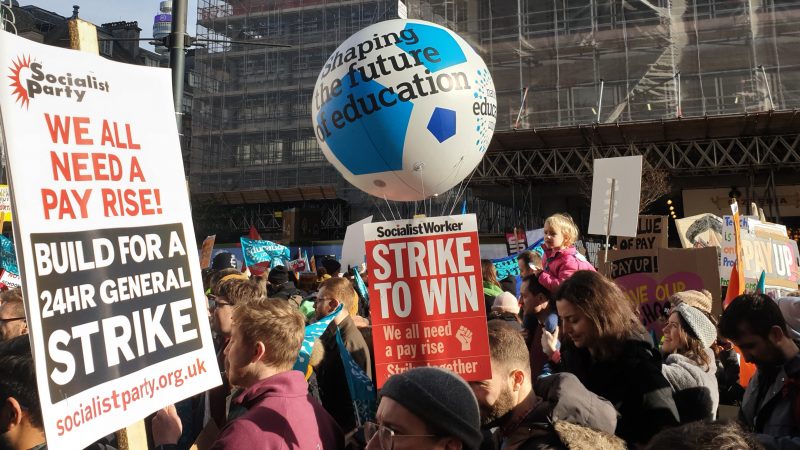"This government is brazenly attacking the right to strike"

Trade unions bring a legal case to the High Court today over the government’s recent ‘strike-breaking’ regulations which allow agency workers to cover during strike action.
The challenge has been coordinated by the Trades Union Congress (TUC) and eleven trade unions representing millions of workers across a range of sectors.
New regulations introduced by the government last year allow agency workers to fill in for striking workers, which the TUC has slammed as “anti-worker” and a brazen attack on the right to strike.
It had been unlawful for employers to introduce or supply agency workers to replace striking workers since 1976. However the government removed this key regulation in the height on strike action last summer.
The change has been heavily criticised by unions, agency employers and parliamentarians for undermining workers’ strike action and potentially endangering public safety when inexperienced agency staff are brought in to fill safety critical roles.
The Recruitment and Employment Confederation, which represents suppliers of agency workers, previously described the proposals as “unworkable”.
Whilst the Lords Committee who scrutinise the legislation said, “the lack of robust evidence and the expected limited net benefit raise questions as to the practical effectiveness and benefit” of the new rules.
Two seperate legal cases are also being brought to court by UNISON and NASWUT over the regulation change.
Trade unions will argue that the regulation changes are unlawful as they violate fundamental trade union rights protected in Article 11 of the European Convention on Human Rights, which says, ‘everyone has the right to freedom of peaceful assembly and to freedom of association with others, including the right to form and to join trade unions’.
They also argue that the then secretary of state for business failed to consult unions, as required by the Employment Agencies Act 1973.
TUC general secretary Paul Nowak said bringing in less qualified agency staff could “poison” industrial relations, endanger public safety and that they are likely illegal.
“This government is brazenly attacking the right to strike,” Nowak said.
“First by cynically changing the law to allow employers to hire agency workers to fill in for striking workers, and now with the draconian anti-strikes Bill.
“Bringing in less qualified agency staff to deliver important services could endanger public safety, worsen disputes and poison industrial relations.
“That’s why unions are coming together to fight these attacks all the way – including in the courts.”
UNISON said they are ‘deeply concerned’ by the government’s attempts to remove trade union and workers’ rights and that breaking strikes doesn’t address the root cause of why people strike.
Unions are also battling the Strikes (Minimum Service Levels) Bill which is getting pushed through Parliament by minsters to set minimum staffing levels during strike action.
This ‘draconian’ Bill has been blasted as a further threat to strike action and an attack on working people and their ability to bargain for better pay and conditions.
“Working people need stronger legal protections and more power in the workplace to defend their living standards – not less,” said Nowak.
Unions involved in the challenge today include Aslef, BFAWU, FDA, GMB, NEU, NUJ, POA, PCS, RMT, Unite and Usdaw.
The hearings will conclude tomorrow with results expected in a few weeks time.
Hannah Davenport is trade union reporter at Left Foot Forward
Left Foot Forward’s trade union reporting is supported by the Barry Amiel and Norman Melburn Trust

Left Foot Forward doesn't have the backing of big business or billionaires. We rely on the kind and generous support of ordinary people like you.
You can support hard-hitting journalism that holds the right to account, provides a forum for debate among progressives, and covers the stories the rest of the media ignore. Donate today.



